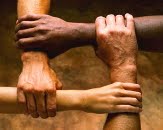

| Visitors Now: | |
| Total Visits: | |
| Total Stories: |

| Story Views | |
| Now: | |
| Last Hour: | |
| Last 24 Hours: | |
| Total: | |
Pay It Forward: Elevation Leads to ‘Altruistic Behavior’
by Barbara Isanski
“Seeing someone perform a virtuous deed (especially if they are helping another person), makes us feel good, often eliciting a warm, fuzzy feeling in our chest. This positive, uplifting emotion, known as “elevation,” might make us feel great, but is it enough to get us to go out and perform good acts ourselves? According to new findings reported in “Psychological Science,” a journal of the Association for Psychological Science, the answer may be yes.
Psychological scientists Simone Schnall from the University of Cambridge, Jean Roper from the University of Plymouth, and Daniel M.T. Fessler from the University of California, Los Angeles, wanted to investigate the influence of elevation on behavior. Volunteers viewed either a neutral TV clip (showing scenes from a nature documentary) or an uplifting TV clip (a segment from “The Oprah Winfrey Show” showing musicians thanking their mentors) that was designed to induce feelings of elevation and then wrote an essay describing what they watched. As they received their payment and a receipt, they were to indicate if they would be willing to participate in an additional study.
The results revealed that participants who watched the uplifting TV clip were more likely to volunteer for another research study than volunteers who saw the neutral TV clip, suggesting that elevation may make us more willing to help others. However, anybody can say they will volunteer for a subsequent study or would be willing to help another person. The researchers wanted to see if elevation can result in actual helping behavior.
In the next experiment, a different set of volunteers watched one of three TV clips: the neutral TV clip or the uplifting TV clip used previously, or a clip from a British comedy, intended to induce mirth. After they viewed the TV clip, the research assistant conducting the study pretended to have problems opening up a computer file that was required for the experiment. She told the volunteers that they were free to leave but as they were leaving, she asked them if they would be willing to complete a questionnaire for another study (unbeknownst to the volunteers, the actual experiment was measuring whether or not they helped with the additional study). The researcher noted the questionnaire was boring and that the volunteers could leave whenever they wanted.
The results of this second experiment were striking — the participants who viewed the uplifting TV clip spent almost twice as long helping the research assistant than participants who saw the neutral TV clip or the comedy clip, indicating that elevation may lead to helping behavior. The authors conclude that “by eliciting elevation, even brief exposure to other individuals’ prosocial behavior motivates altruism, thus potentially providing an avenue for increasing the general level of prosociality in society.”
- http://www.uab.cat/servlet/
2012-10-20 02:43:27
Source: http://coyoteprime-runningcauseicantfly.blogspot.com/2012/10/pay-it-forward-elevation-leads-to.html
Source:



